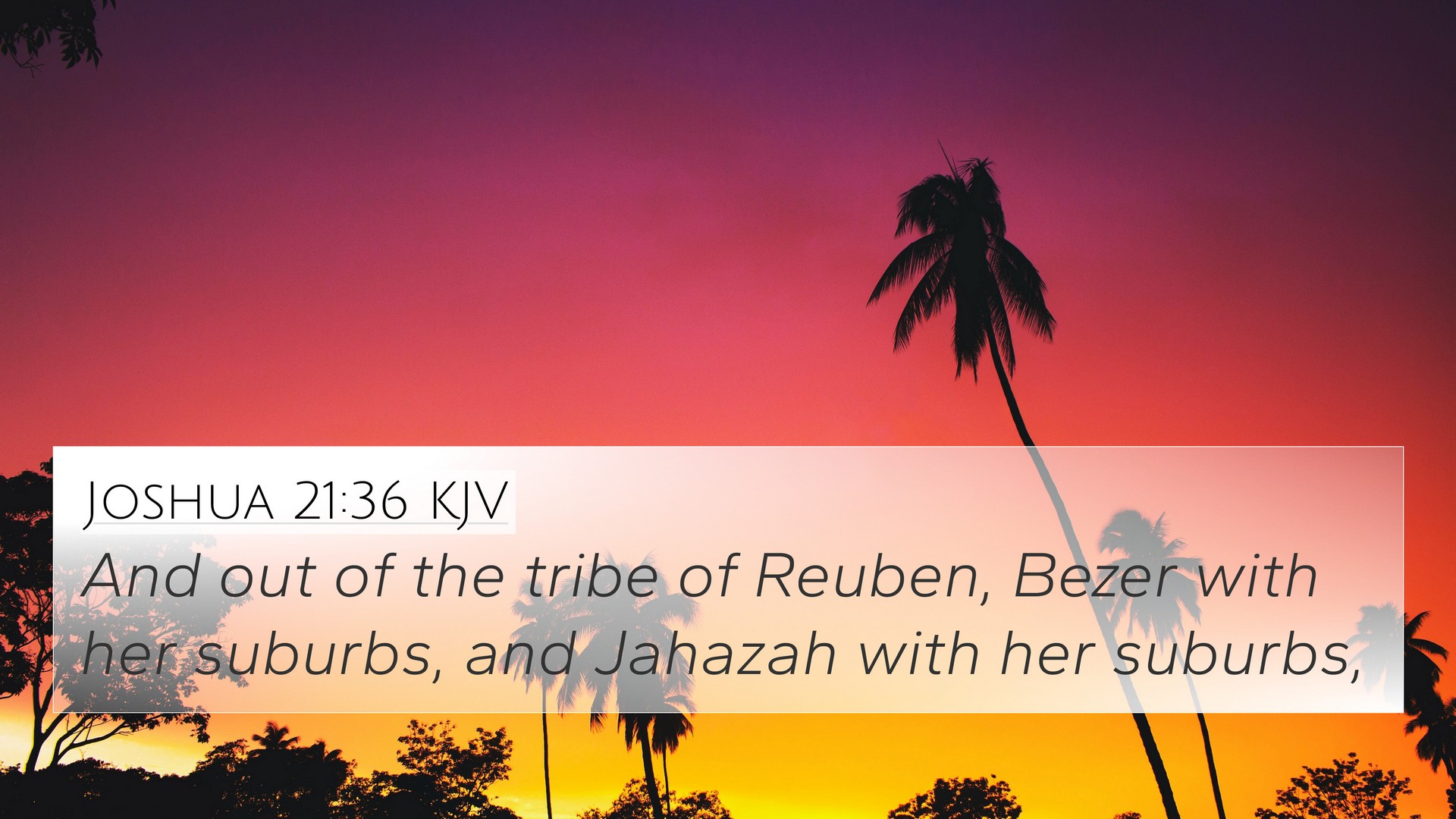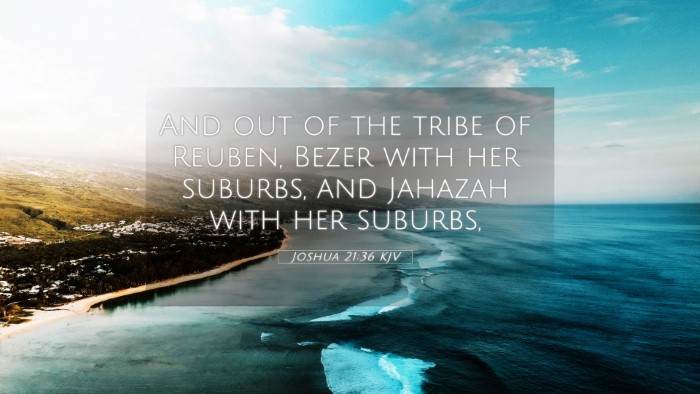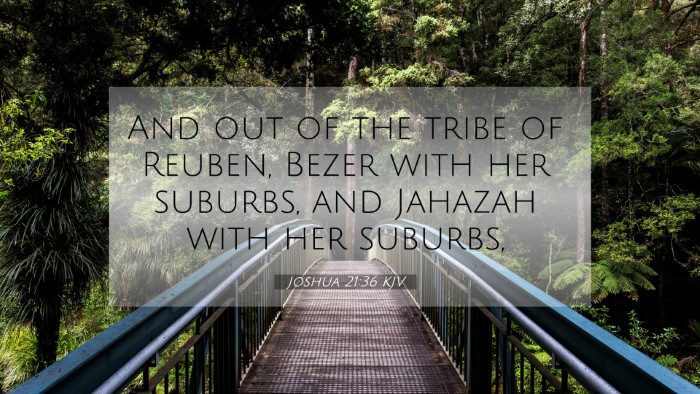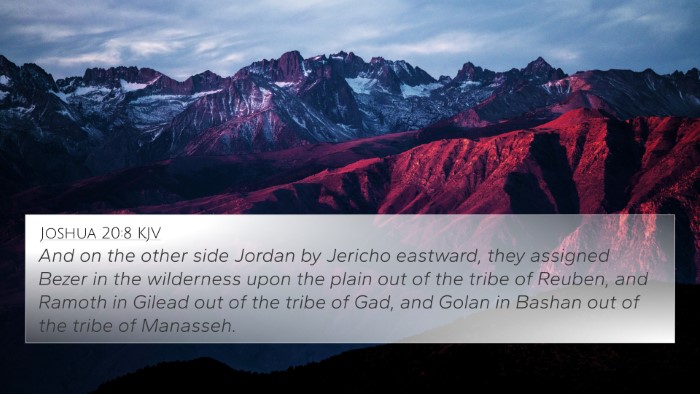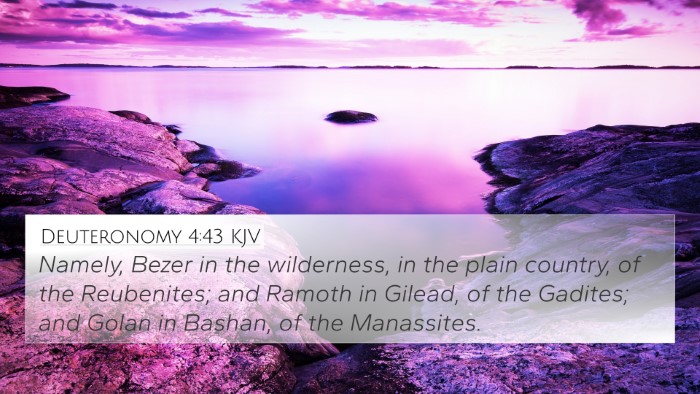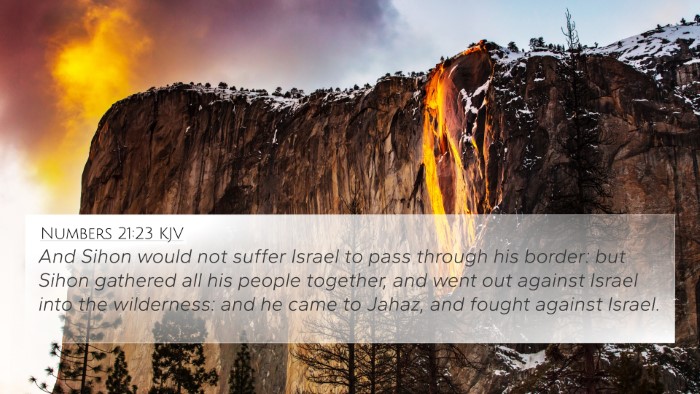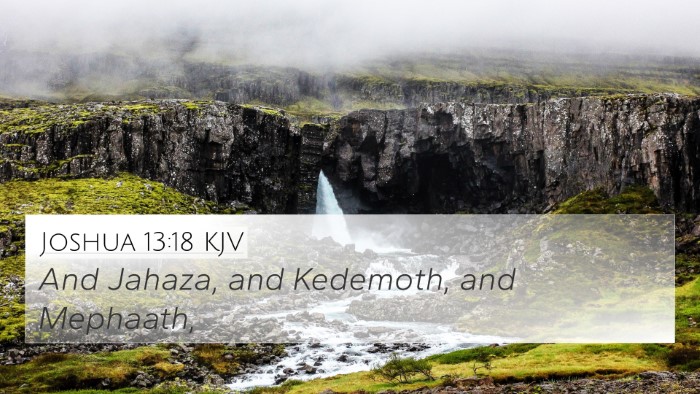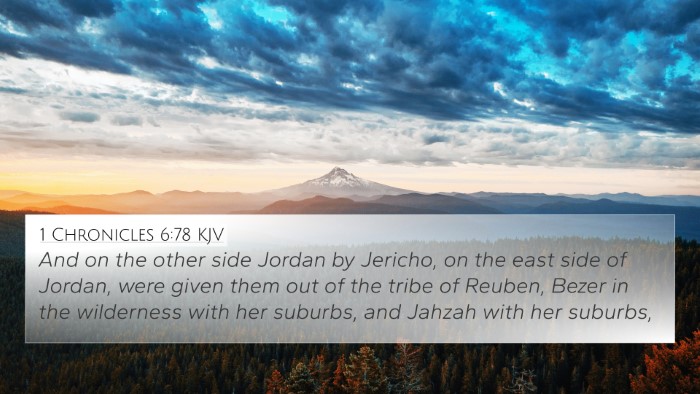Understanding Joshua 21:36
Bible Verse: "And out of the tribe of Gad, the cities which were assigned were Ramoth in Gilead, and Mahanaim."
Joshua 21:36 details the allocation of cities to the tribe of Gad as part of the land distribution conducted by Joshua. This particular verse emphasizes the importance of proper inheritance among the tribes of Israel following their exodus from Egypt and entrance into the Promised Land. This allocation signifies not only territorial significance but also God's fulfillment of His promises regarding land and inheritance to His people.
Commentary Insights
Matthew Henry's Commentary: Matthew Henry underscores that the specific mention of Ramoth in Gilead and Mahanaim indicates God's provision in ensuring that each tribe received cities for habitation and administration. Ramoth was a city of refuge, emphasizing God's mercy and protection. Henry asserts that the allocation of these cities serves as a reminder of God's promise to provide safe havens for His people.
Albert Barnes' Notes: Barnes emphasizes the strategic importance of the cities mentioned. Ramoth, being situated east of the Jordan, acted as a protectorate against hostile nations and provided a military advantage. Mahanaim, noted as a significant site in biblical history, served as a hub for military operations as evidenced in the times of David and Absalom, highlighting the interconnectivity of historical events marked by these locations.
Adam Clarke's Commentary: Clarke draws attention to the distinction between the towns given to the Levites and those to the other tribes. He notes that Ramoth's designation as a city of refuge showcases the compassionate nature of God's laws, providing a refuge for the innocent. Additionally, he mentions that the names of these cities remind believers of their heritage and divine protection.
Biblical Cross-References
Joshua 21:36 connects with several other scriptures that expand upon its themes of inheritance, refuge, and providence. Here are notable cross-references:
- Deuteronomy 4:41-43: Establishes cities of refuge in Israel, showing foundational principles of mercy and justice.
- Numbers 35:6-7: Details the allocation of cities of refuge among the tribes, reinforcing the significance of these cities.
- 1 Chronicles 6:80: Further lists the cities of refuge assigned to the Levites, maintaining the thematic connection of God’s protective narrative.
- 2 Samuel 2:8-9: Mentions Mahanaim as a key location during David’s reign, thereby validating its historical military importance.
- 2 Samuel 17:24: References Mahanaim in relation to Absalom’s rebellion, illustrating its strategic location.
- Matthew 24:15: Although in a different context, the city’s role in refuge can evoke discussion about spiritual refuge found in Christ.
- Isaiah 33:16: Connects the ideas of divine protection and sustenance with those who put their trust in God, echoing the security of cities like Ramoth.
- Hebrews 6:18: Speaks about refuge and the hope in God, drawing a spiritual parallel to the physical cities of refuge.
- Revelation 21:3-4: Ultimately showcases God's desire to dwell among His people, culminating the promise of protection and inheritance in eternity.
- Psalms 46:1: Highlights God as a refuge, tying the theme of safety found in Him as with the cities mentioned.
Exploring Connections Between Bible Verses
As we investigate Joshua 21:36 and its connections with other scriptures, one can see a divine narrative interwoven throughout biblical texts. Each verse, whether in the Old Testament or New Testament, can be linked to reveal broader themes of God’s providence, mercy, and the promise of refuge.
Thematic Bible Verse Connections
Historical Context: The cities of refuge serve as more than mere geographic locations; they symbolize God’s mercy and a place where justice and grace meet. Analyzing ancient calls for refuge parallels New Testament teachings regarding refuge in Christ and the ultimate safety believers find in Him.
Inter-Biblical Dialogue: The cities’ existence allows for dialogue between the texts of the Old Testament and their New Testament fulfillments. Prominent themes like salvation, safety, and divine providence resonate across these scriptures, enhancing understanding through comparative Bible verse analysis.
Tools for Bible Cross-Referencing
Utilizing a Bible concordance or a cross-reference Bible study guide can aid in discovering the intricate relationships between various verses. These tools facilitate exploration into not only the histories but also themes that link different parts of Scripture seamlessly.
By understanding the connections between Bible verses like Joshua 21:36 and its corresponding scriptures, believers gain a richer comprehension of God’s word, enhancing their faith and understanding of biblical promises.
Conclusion
Joshua 21:36 serves as a testament to God's faithfulness in fulfilling His promises to the tribes of Israel, embodying themes of refuge and inheritance. By employing tools for cross-referencing and recognizing inter-Biblical dialogues, one can explore the profound connections within the Scriptures that offer insight into God's nature and His covenant with His people.
